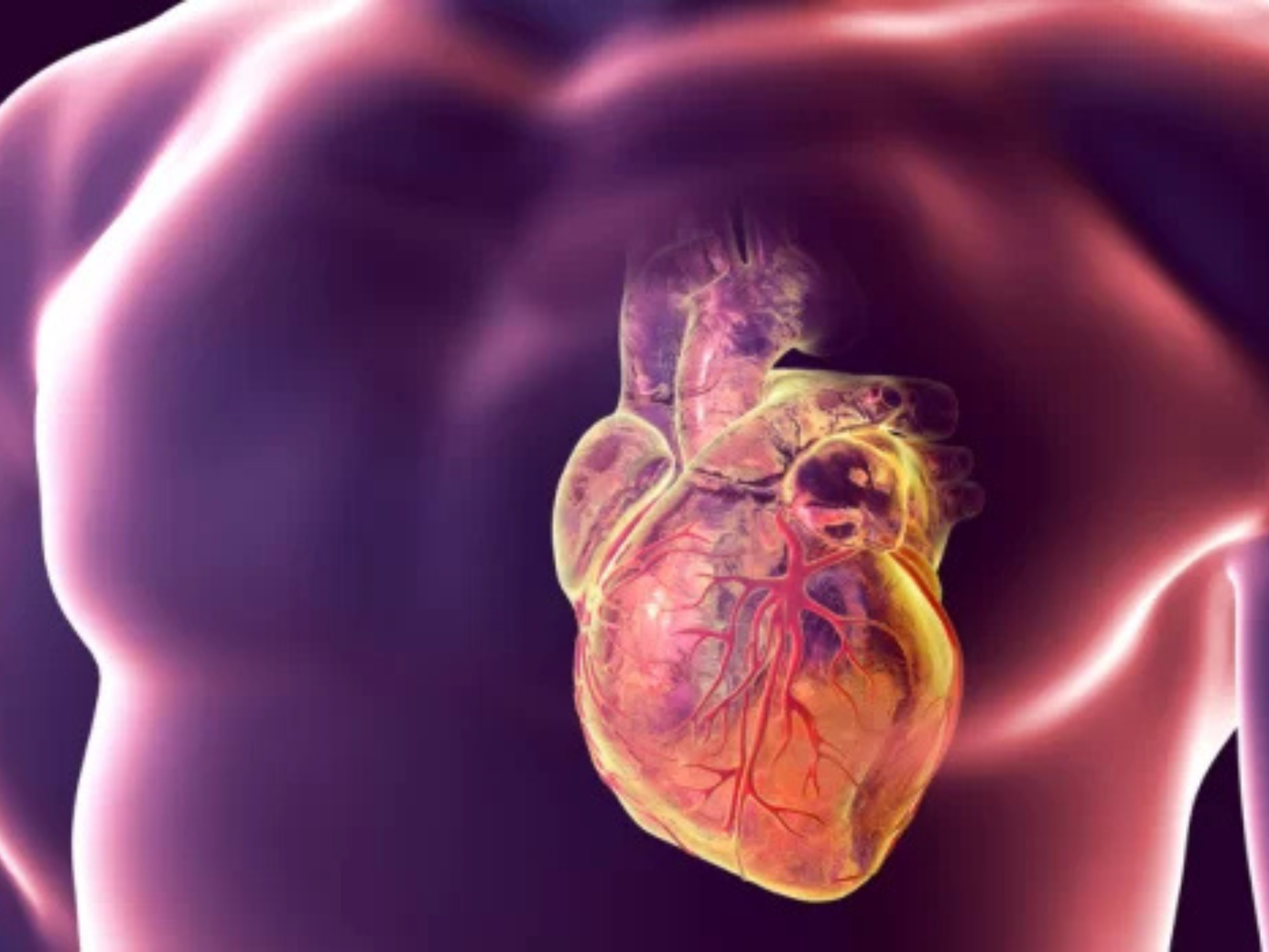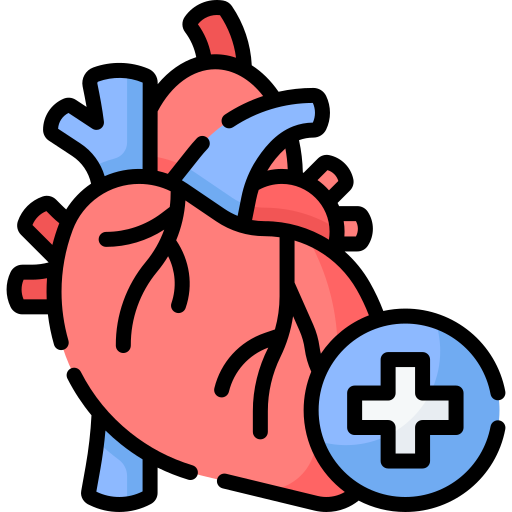Cardiology Treatment
Cardiology treatment focuses on diagnosing and managing heart conditions, such as coronary artery disease, heart failure, and arrhythmias. With cardiovascular diseases being a leading cause of death worldwide, early detection and effective treatment are crucial for improving patient outcomes. Common diagnostic tests include electrocardiograms (ECGs), echocardiograms, and stress tests, which help cardiologists assess heart health. Treatment options range from medications and lifestyle changes to surgical interventions like angioplasty and bypass surgery. By adopting a heart-healthy lifestyle and seeking regular check-ups, individuals can significantly reduce their risk of heart disease and enhance their overall well-being.

About Cardiology Treatment
Cardiology treatment focuses on diagnosing, managing, and preventing heart-related conditions. The heart is a vital organ responsible for pumping blood throughout the body, and maintaining its health is essential for overall well-being. Cardiovascular diseases, including coronary artery disease, heart failure, arrhythmias, and hypertension, are leading causes of death worldwide. Early detection and effective treatment are crucial in managing these conditions and improving patients’ quality of life.
Common Cardiovascular Conditions
Coronary Artery Disease (CAD): This condition occurs when the coronary arteries become narrowed or blocked due to plaque buildup, restricting blood flow to the heart. Symptoms may include chest pain (angina), shortness of breath, and fatigue.
Heart Failure: This is a chronic condition in which the heart cannot pump blood effectively, leading to fluid buildup in the lungs and other parts of the body. Symptoms include fatigue, swelling in the legs, and difficulty breathing.
Arrhythmias: Abnormal heart rhythms can lead to complications such as palpitations, dizziness, or fainting. Common arrhythmias include atrial fibrillation and ventricular tachycardia.
Hypertension (High Blood Pressure): High blood pressure puts extra strain on the heart and blood vessels, increasing the risk of heart disease and stroke. Often called the “silent killer,” it may have no symptoms but requires regular monitoring.
Diagnostic Tests in Cardiology
Cardiologists use various diagnostic tests to assess heart health and determine the appropriate treatment plan:
Electrocardiogram (ECG/EKG): This test records the electrical activity of the heart and helps identify irregular heartbeats or damage.
Echocardiogram: This ultrasound test provides images of the heart’s structure and function, helping to diagnose conditions like heart failure or valve disease.
Stress Test: This test evaluates how the heart performs under physical stress, typically using exercise or medication to increase heart rate.
Coronary Angiography: A specialized X-ray technique that visualizes the coronary arteries to identify blockages or narrowings.
Treatment Options for Cardiac Conditions
Cardiology treatment plans are tailored to the individual based on their specific condition and health needs. Common treatment options include:
Medications: Various medications are prescribed to manage heart conditions, including:
- Antihypertensives: To lower high blood pressure.
- Statins: To reduce cholesterol levels and prevent plaque buildup.
- Anticoagulants: To prevent blood clots, especially in patients with arrhythmias.
Lifestyle Changes: Patients are encouraged to adopt heart-healthy lifestyle changes, including:
- Diet: Following a balanced diet low in saturated fats, cholesterol, and sodium.
- Exercise: Engaging in regular physical activity to strengthen the heart and improve circulation.
- Quitting Smoking: Eliminating tobacco use significantly lowers the risk of heart disease.
Surgical Interventions: In some cases, surgical procedures may be necessary, such as:
- Angioplasty and Stenting: A minimally invasive procedure to open blocked arteries.
- Coronary Artery Bypass Grafting (CABG): A surgical procedure that creates a new path for blood flow to the heart by bypassing blocked arteries.
- Valve Repair or Replacement: Surgery to fix or replace damaged heart valves.
Cardiac Rehabilitation: A medically supervised program that helps patients recover after a heart event or surgery. It includes exercise training, education, and support for lifestyle changes.
Prevention of Heart Disease
Preventing cardiovascular disease is essential for maintaining heart health. Key strategies include:
- Regular Check-ups: Regular visits to a healthcare provider for heart health assessments can catch potential issues early.
- Healthy Diet: Eating a diet rich in fruits, vegetables, whole grains, and lean proteins supports heart health.
- Physical Activity: Engaging in at least 150 minutes of moderate aerobic exercise each week can reduce the risk of heart disease.
- Stress Management: Practicing stress-reduction techniques, such as yoga or meditation, can benefit heart health.
Conclusion
Cardiology treatment plays a vital role in diagnosing and managing heart conditions, emphasizing the importance of early detection and preventive care. With advances in medical technology and a focus on personalized treatment plans, patients can significantly improve their heart health and overall quality of life. If you or someone you know is experiencing symptoms of heart disease, it is crucial to seek medical attention promptly.

Cardiology Treatment
- Angioplasty Surgery
- Aortic Valve Repair
- Atherosclerosis Treatment
- Atrial Septal Defect Closure
- Balloon Pulmonary Valvuloplasty
- Cardiac Asthma Treatment
- Coarctation Of The Aorta
- Coronary Artery Angiography (CAG)
- Double Valve Replacement
- Endoscopic Vein Harvesting
- Heart Bypass Surgery
- Hypertension Treatment
- Mitral Valve Repair
- Myocardial Infarction Treatment
- Pericarditis Treatment
- Rastelli Procedure
- Roemheld Syndrome
- Transcatheter Aortic Valve Implantation
- Aortic Stenosis Treatment
- Aortopulmonary window
- Atrail Septal Defect
- Balloon Mitral Valvuloplasty
- Bentall Procedure
- Cardioversion Treatment
- Coronary Angiography
- Coronary Artery Disease
- Electrophysiology Study
- Fontan Procedure
- Heart Valve Repair
- Intra-Aortic Balloon Pump Insertion
- Myocardial Bridge Treatment
- Pacemaker Implantation
- Pulmonary Artery Banding
- Robotic Heart Bypass Surgery
- Tetralogy Of Fallot
- Ventricular Septal Defect (VSD)
